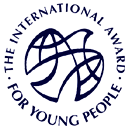
CURRICULUM
Community-Based Learning at The OASIS: Building Foundations for a Fulfilling Life
At The OASIS, we believe that a strong educational foundation is not just about academic success; it’s about preparing students for a meaningful and purposeful life. Our commitment to community-based learning engages students intensely, encouraging them to extend their curiosity beyond the classroom walls and into the real world.
Connecting Learning with Real-World Application
Education at The OASIS is designed to bridge the gap between students’ everyday lives and their learning processes. We align with the Partnership for 21st Century Skills, advocating that real-world connections are crucial for student success. We redefine literacy not only as reading, writing, and arithmetic but as the ability to apply these skills within modern life contexts. This approach ensures our education remains relevant and deeply impactful.
Engaging Learning Strategies
Our curriculum incorporates academically based community service, civic education, environmental education, place-based learning, service learning, and work-based learning. These methods are supported by our educators, parents, and community members who see the profound benefits they bring-encouraging these strategies to take root and flourish.
Making Education Relevant and Compelling
Research from the National Council of Educational Research and Training underscores the importance of making education relevant to students’ experiences, cultures, and long-term goals. At The OASIS, learning tasks are active and give students the autonomy to make choices, fostering a sense of control, competence, and belonging. We understand that learning thrives when linked to personal achievement and purpose.
Broadening the Scope of Intelligence
Recognizing that not all learners thrive on traditional academic skills alone, The OASIS encourages the use of spatial, interpersonal, and physical intelligence. Our educational goals are crafted to connect personal achievements with broader purposes, motivating students through community-based problem-solving that enhances their confidence and engagement.
Continuous Assessment and Culminating Events
Our assessment methods are designed to capture the diverse ways students learn and provide timely feedback, crucial for developing self-efficacy. Culminating events, such as public performances and presentations to civic groups, allow students to consolidate and celebrate their learning, reinforcing their academic and personal growth.
Our Commitment to Holistic Development
The OASIS is committed to developing not just academically proficient students but compassionate, critical thinkers who are prepared to contribute positively to society. Our educational principles are centred around four pillars, each equally important in nurturing well-rounded individuals.
- Integrated learning
- Physical health
- Academic excellence
- Emotional maturity
At The OASIS, we don’t just teach; we prepare students to live well, making a living by making a difference.
Join us in fostering a generation that is not only knowledgeable but wise, capable, and ready to lead with integrity.



